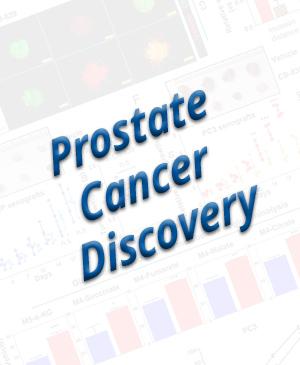
Huang lab discovers novel metabolic mechanism responsible for therapy resistance and disease progression of prostate cancer
A study published in the journal the Proceedings of the National Academy of Sciences this week by Dr. Jiaoti Huang’s lab has for the first time uncovered that an important function of androgen receptor in prostate cancer is to induce the expression of glutaminase 1 (GLS1), an enzyme that enables the cancer cells to use glutamine as a nutrient to fuel tumor growth. Hormonal therapy inhibits GLS1 expression and prevents tumor cells from utilizing glutamine, starving the tumor to death. However, the tumor cells eventually adapt to the androgen-deprived environment by expressing an isoform of GLS1 that is independent of androgen receptor, leading to therapy resistance and disease progression.
Based on these new findings, the team is working on a novel treatment strategy to target GLS1 directly in advanced prostate cancer to bypass the complex pathway of androgen receptor signaling, which has the potential to avoid the many side effects caused by hormonal therapy. Directly targeting metabolism will also make it more difficult for tumor cells to develop resistance mechanisms, potentially achieving better therapeutic outcomes.